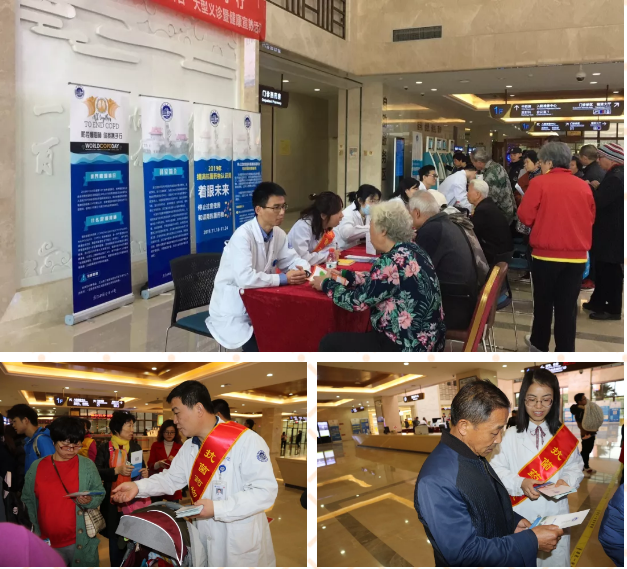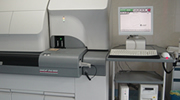【World Antibacterial Drug Awareness Week】Curbing drug resistance, Zhejiang Hospital
Hits: 3214 Time: 2019-11-21
Since November 2015, the World Health Organization (WHO) has launched the first World Antimicrobial Drug Awareness Week, and since then, the third week of November every year is the "World Antimicrobial Drug Awareness Week" established by WHO. In order to actively respond to the challenges brought by bacterial drug resistance, improve the scientific management of antimicrobial drugs, and curb the development and spread of bacterial drug resistance, the medical department of Zhejiang Hospital officially opened the "2019 Antimicrobial Drug Awareness Week" activity in the morning of November 18, after careful preparation by the medical department of the hospital.
The use of antibiotics "get better faster"?
The theme of this year's "2019 Antimicrobial Awareness Week" is "Stop overuse and misuse of antimicrobial drugs for the future".
At 8:30 a.m., our Vice President Song Baishan, Deputy Director of Medical Department Bu Zhibin, Deputy Director of Pharmacy Department Xiang Yingchun, together with clinical pharmacists, answered questions for the public in the outpatient lobby, introduced the hazards of antibacterial drug abuse, popularized the correct use of antibacterial drugs, corrected some common misconceptions about drug use, and distributed more than 500 printed leaflets on the rational use of antibacterial drugs to patients. Patients.

Patient Auntie Liu suffers from a respiratory disease and previously wanted to hurry to suppress it with infusion every seasonal change, "I feel better faster with antibacterial drugs, doctor, is that so?" She asked.
Xiang Yingchun introduced that many patients are willing to use antibacterial drugs, especially to infuse antibacterial drugs, for the reason of "getting better fast". In fact, the efficacy of oral medication and infusion medication is basically the same, but when infusion medication directly into the blood circulation, can quickly reach the highest peak drug concentration, the effect is faster, but oral or infusion medication should be based on anti-infection needs to choose the medication.
Misuse of antibiotics can have serious consequences
In the waiting area of each consultation area, the clinical pharmacist used mobile TV to make a PPT presentation to let patients establish the correct concept of rational use of antibacterial drugs.
Pharmacist Fan Haoqun from the pharmacy department of our hospital said that if antibacterial drugs are used without doctor's guidance and in insufficient dosage, not only will the therapeutic efficacy be compromised, but bacteria will also gradually develop antibodies to such antibacterial drugs and become drug-resistant bacteria. And this drug-resistant bacteria will be inherited to the offspring, the offspring bacteria carry the drug-resistant gene, may be planted in the body, once your immune system is reduced, drug-resistant bacteria will carry on a large number of reproduction, then can only be replaced by more advanced antibacterial drugs, and new drug development takes a long time.
What is even more frightening is that drug-resistant bacteria can spread, and if they are allowed to multiply and spread unchecked, there will be no antibacterial drugs available to humans.
In addition, some patients use an antibacterial drug at home for two weeks or even a month or more. If a mild to moderate infection is generally not effective for 3-5 days, you should see your doctor for a follow-up. The course of antibacterial drugs for severe infections is longer. For example, some cephalosporin III drugs eaten in a disorderly manner can lead to a disturbance in the balance of intestinal flora. For example, if a mycoplasma infection chooses to use cefixime, it may kill off the normal negative bacteria in the body. These problems can occur with prolonged use or non-allopathic use and abuse of antibacterial drugs.

In addition to taking on-site expert consultation, distributing scientific information, and clinic area lectures, the hospital also uses easy-to-use display publicity and posters and slogans to introduce the importance of rational use of antibacterial drugs to the public. Next, the hospital will also carry out industry academic activities, relying on medical institutions to carry out antibacterial drug reviews, antibacterial drug application case analysis, multidisciplinary joint MDT on clinical application of antibacterial drugs, antibacterial drug use, scientific lectures, business learning on the standardized use of antibacterial drugs joint medical record quality control on the standardized use of antibacterial drugs and other activities to promote medical personnel to improve the rational use of antibacterial drugs.

Song Baishan concluded that antimicrobial drug abuse has become a global health and safety problem, and as medical personnel, under the premise of rational use of antimicrobial drugs, they should pay enough attention to the overuse and misuse of antimicrobial drugs. All along, Zhejiang Hospital has been strengthening multi-departmental collaboration and supervision in the rational use of antibacterial drugs, actively participating in the training of theoretical knowledge related to antibacterial drugs and mastering the principles of rational application of antibacterial drugs. Through this activity week, Zhejiang Hospital will widely publicize the knowledge of rational use of antibacterial drugs, raise the awareness of the public and medical personnel about the crisis of bacterial drug resistance, firmly establish the concept of rational use of antibacterial drugs, reduce the use of unnecessary drugs, and create a good atmosphere for the whole society to care about, support and participate in the rational use of antibacterial drugs.






